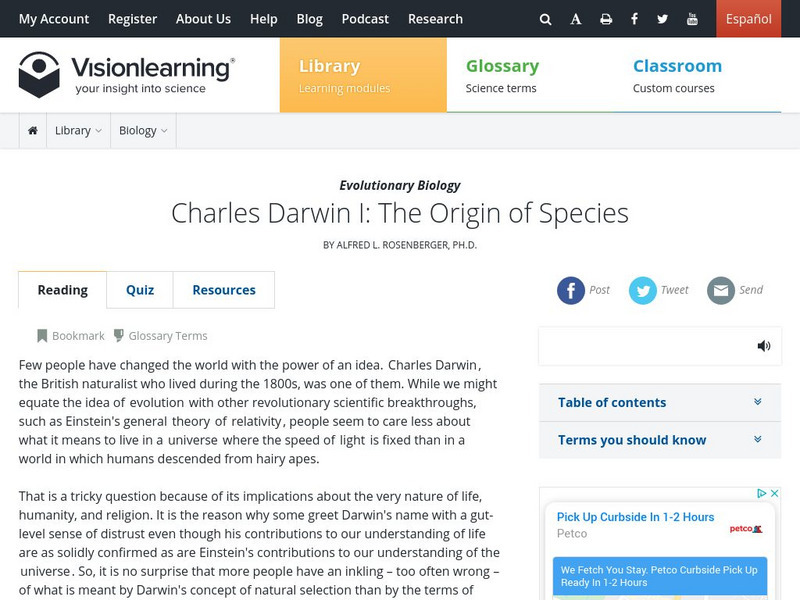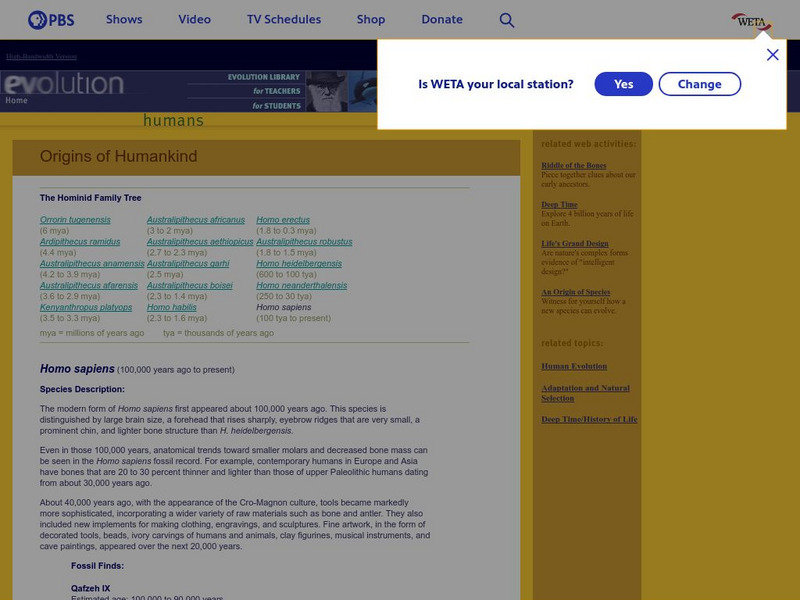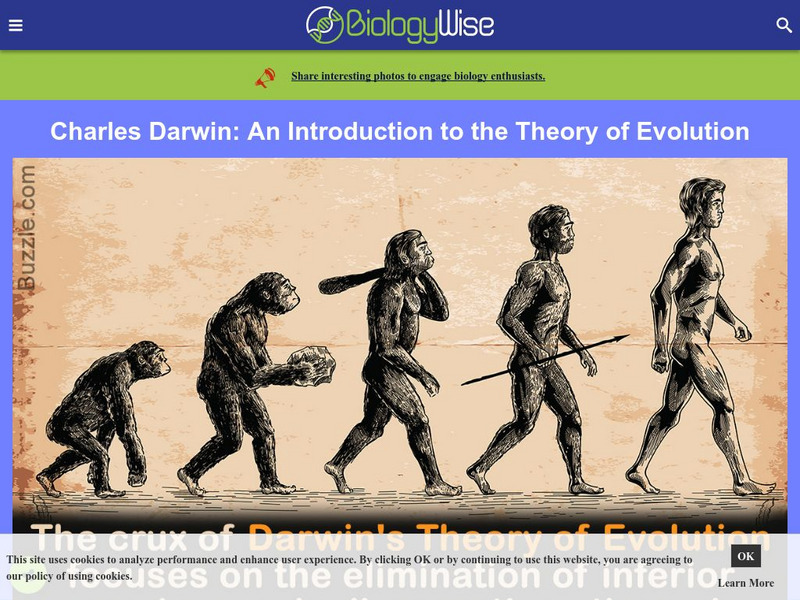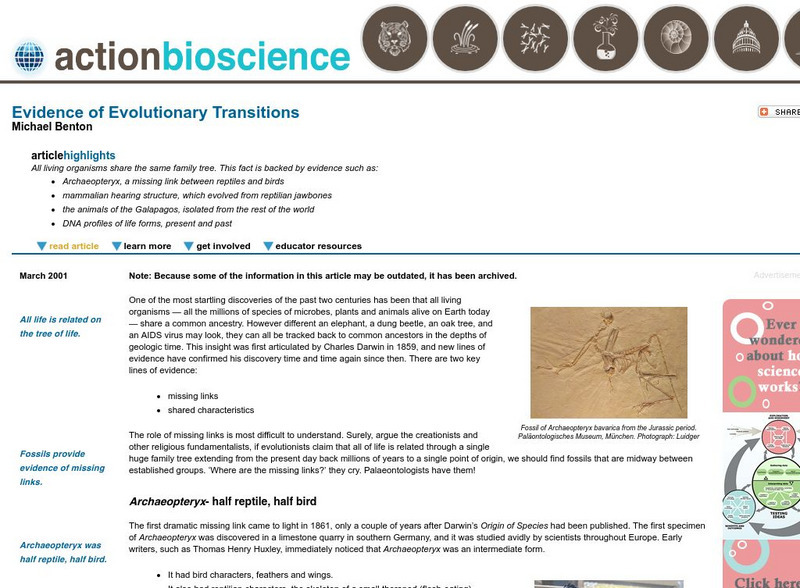Vision Learning
Visionlearning: Biology: Charles Darwin I: The Origin of Species
Instructional module focusing on the early work of Charles Darwin. Discusses Darwin's key role in supporting and describing the theory of evolution as driven by natural selection. Site also includes an interactive practice quiz and links...
Cornell University
Cornell University: Library: Charles Darwin After the Origin
In honor of Darwin's 200th birthday and the 150th anniversary of the publication of "The Origin of the Species," Cornell has put together an extensive collection of Darwin's work during the last two decades of his life.
BiologyWise
Biology Wise: History of Genetic Engineering
Presents a timeline of the history of genetic engineering beginning in 1859 with the publication of The Origin of Species by Charles Darwin.
CK-12 Foundation
Ck 12: Biology: Macroevolution Study Guide
Review the process of species changing and evolving over time.
PBS
Pbs: Evolution: Origins of Humankind: Homo Sapiens
Read a description of Homo sapiens as a species, learn about the variety of Homo sapiens fossils that have been found, and discover evidence of the culture of these early people.
BiologyWise
Biology Wise: Charles Darwin: Introduction to the Theory of Evolution
The main concepts in Charles Darwin's theory of evolution are described, how natural selection works, and the ongoing criticism of evolution from Creationists.
Other
Sherlockian.net: The Life of Holmes' Creator
This is a fabulous site for the Sherlock Holmes lover. Provided here is a brief biography of Holmes' creator Sir Arthur Conan Doyle along with many other links to Sherlockian information.
Encyclopedia of Earth
Encyclopedia of Earth: Species: Gymnosperm
Article explaining what a gymnosperm is, and its origin in the Carboniferous Period. It covers taxonomy, distribution, and types of gymnosperms and how they reproduce. (Published: March 24, 2010)
Smithsonian Institution
National Museum of Natural History: Homo Habilis
This resource provides graphics, as well as explanation, of the remains of Homo habilis.
American Institute of Biological Sciences
Action Bioscience: Evidence of Evolutionary Transitions
Charles Darwin's theory that all living organisms are connected in some way has been confirmed through intense studies over centuries. Understand the similarities that bond all things living to the same family tree by checking out this...
University of California
University of California Museum of Paleontology: Fossil Evidence
Understanding Evolution provides evidence for evolution using fossils. There are also links to lesson plans.
Talk Origins Archive
Talk Origins: The Hominid Species
Talk Origins gives a broad description of the types of Hominid species, and then gives a description of each species. Includes the specific characteristics of each, and explains the differences between the species.
Other
Washington State Univ.: Questions About Human Evolution
How far back in time can we date bones or skeletons? How did certain species of man just die off? What was the manner of their communication? These questions and more are answered in this informative essay.
PBS
Pbs: Dogs and More Dogs
NOVA takes a comprehensive look at the origin of different species of dogs in this feature. Interesting information like, why do they come in so many shapes and sizes, and why do they have us right where they want us is provided.
Indiana University
Ensi: The Great Fossil Find Lesson Plan
Students hear a story as they "find" bones that you have put in an envelope for them. Their job is to begin assembling the bones as best they can. The students will invariably come up with different configurations--just like scientists...
Ed Koday
Web Archive: Viceroy Butterfly
The upperside of the viceroy is orange and black, and looks a lot like the monarch butterfly, except the viceroy has a black line across the hindwing and a single row of white dots in the black band on the edges of their wings. Where...











